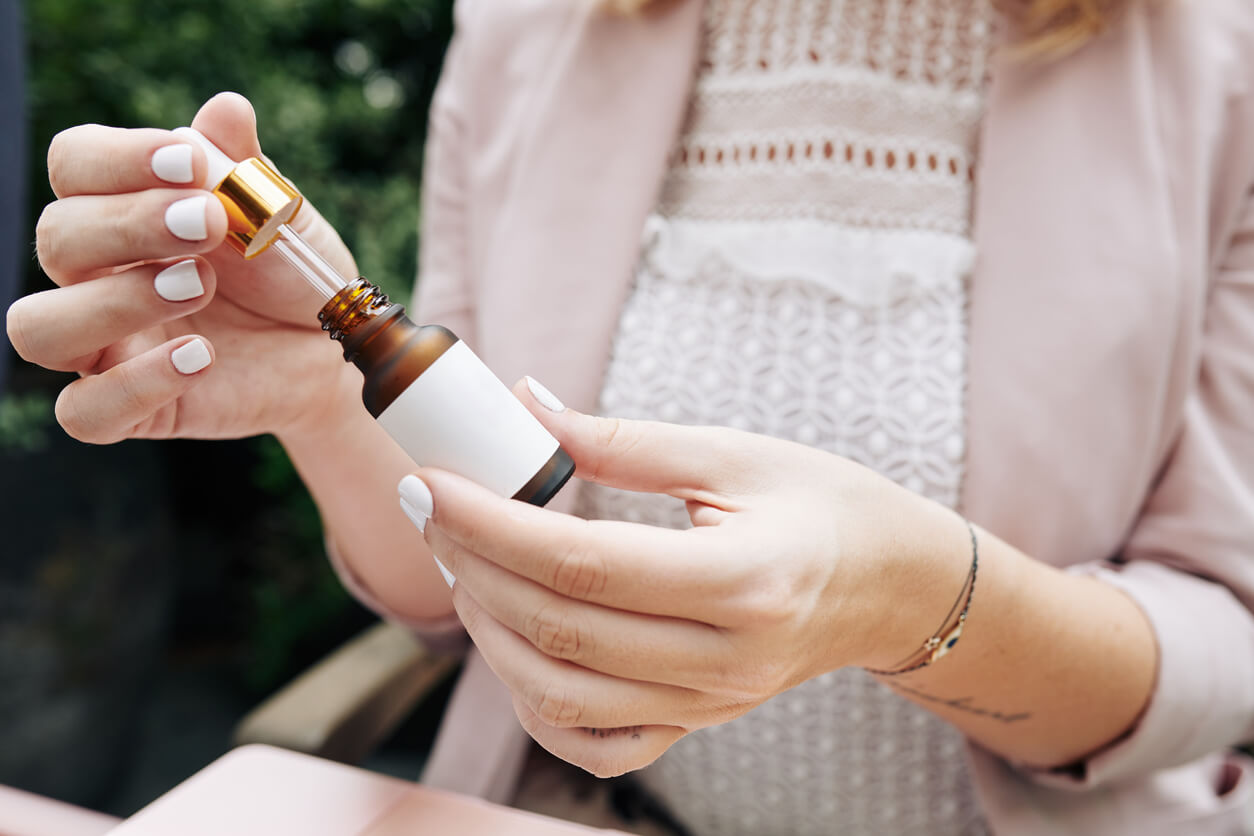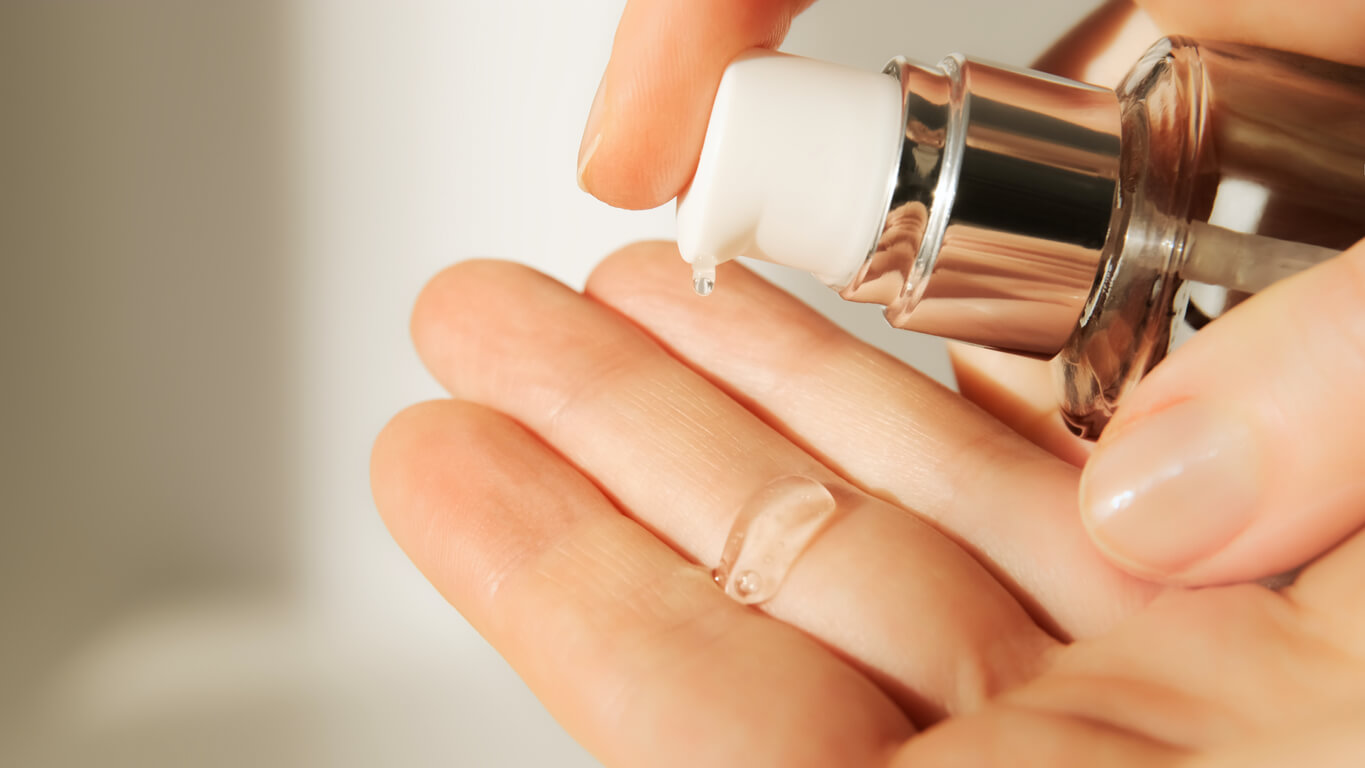Can I Use Retinol During Pregnancy?


Written and verified by the dermatologist Maria del Carmen Hernandez
What is retinol?
Retinol is one of the most useful active ingredients in cosmetic products. However, its use isn’t recommended during pregnancy because of the fetal complications it can cause. It’s a derivative of vitamin A that, unlike others, is available over the counter and can be found in many cosmetic products.
Retinol also has anti-aging effects by increasing collagen and elastin production and reducing fine wrinkles and dull skin. It also contributes to the exfoliation of the superficial layers of the skin. However, this product, as well as tretinoin and retinoic acid, are contraindicated in pregnant women.

Products containing vitamin A derivatives
Retinol is one of the most frequently used vitamin A derivatives in skin care cosmetics. Products containing retinoids under medical prescription are indicated in the following diseases:
- Psoriasis treatment
- Acne treatment
- The reduction of hyperpigmented spots
- The reduction of wrinkles and fine lines
- Improving skin texture
Retinoids come in various forms and with different names. In fact, the three most common are tretinoin, isotretinoin, and retinol. Those that are ingested orally are even more dangerous to the fetus than topical ones.
You may be interested in: Cosmetic Components You Can Use During Pregnancy
Risks of retinol use during pregnancy
There’s no scientific evidence showing that the use of over-the-counter cosmetic products causes birth defects. However, doctors don’t recommend the use of any of its variants during this period. However, retinoid-containing drugs, such as isotretinoin, have been shown to cause fetal retinoid syndrome, a condition that causes serious birth defects.
While there’s no certain data on how much retinol is safe for pregnancy, FPS causes a variety of mental and physical developmental problems. Some of these include the following:
- Hearing loss, absence of ears, or low ear implantation
- Central nervous system diseases, such as hydrocephalus
- Cranial or facial malformations
- Cardiac abnormalities
- Microcephaly
- Problems related to the renal gland, parathyroid gland, and thymus
Read also: Creams and Lotions for Pregnant Women: How to Choose?

Alternatives with a function similar to retinol
The Food and Drug Administration monitors the safety of hygiene and skincare products in pregnancy based on their usefulness. It doesn’t require authorization for sale. Therefore, there are multiple variants on the market containing active ingredients with a similar function that can be used during gestation. Some of them include the following:
- Vitamin C: This is a potent antioxidant that notoriously helps with the signs of aging. It also boosts UV protection and softens hyperpigmented spots caused by pregnancy.
- Azelaic acid: This is one of the most indicated active ingredients in rosacea treatments and even as a depigmenting agent. It also helps in the treatment of skin with acne, due to its antimicrobial and anti-inflammatory properties.
- Hyaluronic acid: This is useful for reducing wrinkles and moisturizing the skin.
- Salicylic acid: According to studies published by The College of Family Physicians of Canada, skin absorption of this active ingredient is reduced and doesn’t cause risks to the fetus.
Cosmetic products containing aloe vera, cocoa butter, or green tea also provide softness and moisture to the skin during pregnancy. Therefore, it’s important to carefully read the list of ingredients to ensure their safety.
In addition, some companies offer cosmetic products that are non-toxic and can be used during pregnancy. In fact, they’re not only free of retinol but also of endocrine disruptors, components that can affect the normal functioning of hormones.
Scientific studies and the use of retinol during pregnancy
It should be clarified that studies on the safety of certain active ingredients in pregnant women are limited. This is because most clinical trials during this stage are unethical.
Topical use of retinoids or retinol may help to raise the body’s vitamin A levels. However, during pregnancy, this can cause severe damage to the developing fetus. Even oral use of vitamin A derivatives further increases the risk.
What is retinol?
Retinol is one of the most useful active ingredients in cosmetic products. However, its use isn’t recommended during pregnancy because of the fetal complications it can cause. It’s a derivative of vitamin A that, unlike others, is available over the counter and can be found in many cosmetic products.
Retinol also has anti-aging effects by increasing collagen and elastin production and reducing fine wrinkles and dull skin. It also contributes to the exfoliation of the superficial layers of the skin. However, this product, as well as tretinoin and retinoic acid, are contraindicated in pregnant women.

Products containing vitamin A derivatives
Retinol is one of the most frequently used vitamin A derivatives in skin care cosmetics. Products containing retinoids under medical prescription are indicated in the following diseases:
- Psoriasis treatment
- Acne treatment
- The reduction of hyperpigmented spots
- The reduction of wrinkles and fine lines
- Improving skin texture
Retinoids come in various forms and with different names. In fact, the three most common are tretinoin, isotretinoin, and retinol. Those that are ingested orally are even more dangerous to the fetus than topical ones.
You may be interested in: Cosmetic Components You Can Use During Pregnancy
Risks of retinol use during pregnancy
There’s no scientific evidence showing that the use of over-the-counter cosmetic products causes birth defects. However, doctors don’t recommend the use of any of its variants during this period. However, retinoid-containing drugs, such as isotretinoin, have been shown to cause fetal retinoid syndrome, a condition that causes serious birth defects.
While there’s no certain data on how much retinol is safe for pregnancy, FPS causes a variety of mental and physical developmental problems. Some of these include the following:
- Hearing loss, absence of ears, or low ear implantation
- Central nervous system diseases, such as hydrocephalus
- Cranial or facial malformations
- Cardiac abnormalities
- Microcephaly
- Problems related to the renal gland, parathyroid gland, and thymus
Read also: Creams and Lotions for Pregnant Women: How to Choose?

Alternatives with a function similar to retinol
The Food and Drug Administration monitors the safety of hygiene and skincare products in pregnancy based on their usefulness. It doesn’t require authorization for sale. Therefore, there are multiple variants on the market containing active ingredients with a similar function that can be used during gestation. Some of them include the following:
- Vitamin C: This is a potent antioxidant that notoriously helps with the signs of aging. It also boosts UV protection and softens hyperpigmented spots caused by pregnancy.
- Azelaic acid: This is one of the most indicated active ingredients in rosacea treatments and even as a depigmenting agent. It also helps in the treatment of skin with acne, due to its antimicrobial and anti-inflammatory properties.
- Hyaluronic acid: This is useful for reducing wrinkles and moisturizing the skin.
- Salicylic acid: According to studies published by The College of Family Physicians of Canada, skin absorption of this active ingredient is reduced and doesn’t cause risks to the fetus.
Cosmetic products containing aloe vera, cocoa butter, or green tea also provide softness and moisture to the skin during pregnancy. Therefore, it’s important to carefully read the list of ingredients to ensure their safety.
In addition, some companies offer cosmetic products that are non-toxic and can be used during pregnancy. In fact, they’re not only free of retinol but also of endocrine disruptors, components that can affect the normal functioning of hormones.
Scientific studies and the use of retinol during pregnancy
It should be clarified that studies on the safety of certain active ingredients in pregnant women are limited. This is because most clinical trials during this stage are unethical.
Topical use of retinoids or retinol may help to raise the body’s vitamin A levels. However, during pregnancy, this can cause severe damage to the developing fetus. Even oral use of vitamin A derivatives further increases the risk.
All cited sources were thoroughly reviewed by our team to ensure their quality, reliability, currency, and validity. The bibliography of this article was considered reliable and of academic or scientific accuracy.
- Fetal Retinoid Syndrome. [Internet ]Disponible en: https://rarediseases.org/rare-diseases/fetal-retinoid-syndrome/
- Williams AL, Pace ND, DeSesso JM. Teratogen update: Topical use and third-generation retinoids. Birth Defects Res. 2020 Sep;112(15):1105-1114. doi: 10.1002/bdr2.1745. Epub 2020 Jul 9. PMID: 32643315.
- Bozzo P, Chua-Gocheco A, Einarson A. Safety of skin care products during pregnancy. Can Fam Physician. 2011 Jun;57(6):665-7. PMID: 21673209; PMCID: PMC3114665.
This text is provided for informational purposes only and does not replace consultation with a professional. If in doubt, consult your specialist.








